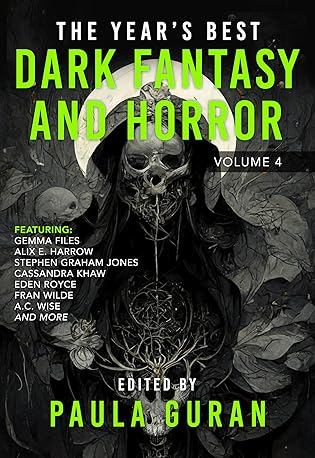 The Year's Best Dark Fantasy & Horror: Volume Four
The Year's Best Dark Fantasy & Horror: Volume Four by
Paula Guran Format: eARC Source: supplied by publisher via Edelweiss Formats available: paperback, ebook, audiobook
Genres: Dark Fantasy,
fantasy,
horror Series: Year's Best Dark Fantasy and Horror Pages: 400
Published by Pyr on October 17, 2023
Purchasing Info: Author's Website,
Publisher's Website,
Amazon,
Barnes & Noble,
Kobo,
Bookshop.org,
Better World Books Goodreads The Year's Best Dark Fantasy & Horror series returns with a splendidly startling fourth volume!
From paranormal plots to stories of the supernatural, tales of the unfamiliar have always fascinated us humans. To keep the tradition alive, fantasy aficionado Paula Guran has gathered the most delightfully disturbing work from some of today’s finest writers of the fantastique!
No two mysterious shadows are alike, and the same can be said for the books in this series. T he Year's Best Dark Fantasy & Horror, Volume 4 contains more than three hundred pages of mystical fiction. Reader beware and indulge if you dare, because these chilling tales are sure to spook and surprise!
My Review:
I don’t normally do this, but this was just one of those times when I couldn’t resist rating each of the stories in this collection individually. As all collections are, it’s a bit of a mixed bag, particularly as it straddles two genres that sometimes stride along happily side by side exchanging anecdotes and experiences, and sometimes travel miles apart with dark caves, sucking swamps and haunted forests in between. That only one of those two genres is my usual jam gave the feeling that I should “show my work” so to speak, as any collective will reflect that for this particular reader the two great tastes don’t always go great together. Readers who prefer to read on the horror side of the fence will likely have a similar reaction but with the emphasis on different stories. In the listings below, (DF) represents Dark Fantasy and, of course, (H) is for Horror.
It also felt like these stories made up an important collection, one that should be read and shivered over, not just in the run up to this Halloween, but for Halloweens to come, whenever readers are looking for a wide-ranging collection of stories that go bump in the night.
Without further ado, the stories in, and my commentaries and ratings upon, The Year’s Best Dark Fantasy and Horror: Volume Four.
“Shadow Plane” by Fran Wilde (H with a hint of SF) A story about vlogging and mountain climbing that turns into a much older tale about medical experimentation, the things we do in the shadows – and the things the shadows do to us. Chilling and compelling. (A-)
“The Dyer and the Dressmakers” by Bindia Persaud (DF) Dyes for clothing come from dyers, literally in this tale about dying for the art of dyeing at the pleasure of the crown. Fell flat – or rather colorless – for me. (C-)
“Red Wet Grin” by Gemma Files (H) The old horror of possession and body snatching – although a twist on that – mixed well with the new horrors of COVID lockdowns, nursing homes, and the kind of greed that turns a blind eye. Great story with thoughtful conclusion that chills on multiple levels. (A+)
“The Lending Library of Final Lines” by Octavia Cade (DF) In a dying seaside town made for dying in, a woman sells the last pages of books to folks ready to commit suicide by crab. Eating the pages is magic, pulling them into the story just long enough to drug them, and let them be drug to death. Interesting but the incuriosity of the protagonist leaves the reader not having enough to give it depth because she refuses to have any, (B-)
“Men, Women and Chainsaws” by Stephen Graham Jones (H) A young woman pours her life’s blood, into the Chevy Camaro that her parents died in, so that the car can come back to life a la Christine along with her parents’ spirits to help her reenact their deaths with a one-victim version of the Texas Chainsaw Massacre. (B)
“The Woman Who Married the Minotaur” by Angela Slatter (DF) Ultimately bittersweet and utterly romantic, this is exactly what the title says it is, the story of a contemporary woman who marries the immortal minotaur from the Labyrinth on Crete. They have a sweet and surprisingly normal life together, but love made him mortal, and in the end, they wouldn’t have had it any other way. (A)
“The Voice of A Thousand Years” by Fawaz Al Matrouk (DF) A beautiful but sad story about the power of education and knowledge set against the recalcitrance of religion, personified in the story of one old man who discovers a magical instrument and does his best to give it new life even at the cost of his own. (A+)
“Bonesoup” by Eugenia Triantafyllou (H) A bit of a variation on Hansel and Gretel where the ‘wicked’ witch merely wants to save the life of her grandchild by giving other children sugar to replace their bones even while she reserves the meat for her granddaughter who finally figures out how to return the favor. A fairy tale retelling that is every bit as scary as they used to be before the Grimm Brothers made them not so grim. (A-)
“Challawa” by Usman T. Malik (DF) Historical dark fantasy that tips into horror at the very end as a woman returns to her family homeland in India to write a story about the horrors of the early matchmaking industry, only to end up in an exchange of historical tales and ghost stories that leads to a deadly reenactment, that is needed to remove the foreign invaders AGAIN. (A+)
“How Selkies Are Made” by Cassandra Khaw (DF) Not as dark as it might have been. It’s a story and it’s a story about how stories get told. And it’s about how foolish humans can be when they’re in love. A woman promises the wrong man entirely too many things he’s not deserving of. After seven years of abuse, she takes her own fate into her own hands, without murder, without breaking her word, but with the help of a selkie. Of course, that’s not how the story gets told. And it’s a bit unsatisfying in the end because the husband really deserved a much worse ending than the loss of a wife he never cared for in the first place. But she kept her honor. (B)
“The Feeding of Closed Mouths” by Eden Royce (H) Her mother is a hag. Not metaphorically, but a real honest-to-badness hag. A monster who once helped her kill a former co-worker and rob a bank, both of which kinda deserved it. But asking a hag for favors seems to be a sure fire way of turning into one yourself, especially if you’re already halfway there. Plenty creepy with a well done heel-turn but not up to some of the other stories in the collection (B-)
“A Belly Full of Spiders” by Mario Coelho (H) Oh so very much horror about a boy who is no longer a boy rescued from monsters hiding in plain sight by a monster who truly is monstrous, with the help of one hell of a lot of spiders who turns out to be on a mission to save all the little children who are held captive in the dark. (B+)
“The Long Way Up” by Alix E. Harrow (DF) It’s a long way down to hell to retrieve her husband, but Ocean is determined to get Ethan back – no matter what it takes. What it takes is faith, trust and listening in this fractured, modernized, gender-reversed version of Orpheus and Eurydice (B+)
“Douen” by Suzan Palumbo (H) The story of a child ghost who, because she never got to grow up, is experiencing ghosthood through a child’s perspective but reacting with a ghost’s powers. The story is both creepy and innocent, and that both the ghost and the humans manage to reach reconciliation at all was a surprise but the story as a whole was more interesting than compelling. (C)
“The Ercildoun Accord” by Steve Toase (DF/H) The concept of conducting archaeology in the lands of faerie, with human tools and human concepts under tricksy fae contracts and conditions was both weird and cool and did a fantastic job of tripping – or rather, being tripped – over the line from Dark Fantasy to Horror in a well-executed combo of inevitability and resignation, even if the reader can’t imagine why ANYONE would be doing this job in the first place! (B+)
“Sharp Things, Killing Things” by A.C. Wise (H) Everyone has a guilty conscience – even if they don’t remember exactly what it is they are guilty of. Or it’s a story about dark small towns where everyone is up in everyone’s business and the cruelties inflicted in childhood ripple out in depressing waves from both the tormentors and their victims. Or it’s a straight up horror story about a town where the only way out is death and he’s going around making sure everyone takes him up on the offer. This one is really good of its type, it’s just not a type I personally care for. (C+)
“Swim the Darkness” by Michael Kelly (DF) This one reminded me of Shark Heart by Emily Habeck, but this story is much more gently told and is less about the girl who becomes a fish and more about parental regrets and the grief of losing a child when it’s supposed to be the other way around. The equivocal ending feels right, because the story has always been more about him than her. It’s possible to interpret this as him grieving so hard he follows, or him regretting so much he can’t let go. I liked the story better than Shark Heart, but it just wasn’t my jam. (B-)
“The Summer Castle” by Ray Naylor (DF/H) On the border between dark fantasy and horror, and not very clear about it into the bargain, it’s the last summer of childhood for two boys on the eve of war. The horror is all in the implications of that war but the story is a bit more amorphous and nebulous than I hoped for from the author of the totally awesome The Mountain in the Sea. (B-)
“In the Smile Place” by Tobi Ogundiran (H) If you put two other stories in this collection, “Men, Women and Chainsaws” and “Sharp Things, Killing Things” into a blender I think you’d get this story. Which makes it even weirder than it was when I read it. It combines the visitation of adult regret over being a young bully of “Sharp Things” with the haunted places and revenge of supposedly inanimate objects of “Chainsaws” into a single weird and creepy story. (B-)
“A Monster in the Shape of a Boy” (DF) At first, this is a dark fantasy about a boy training to become a monster hunter after he fails his first test – when a monster shaped exactly like himself surprises him so much he forgets his training and does not kill it immediately. His training is grim and dark as it seems designed to turn him into more of a monster than the one he was supposed to kill, only for the story to come full circle at the end and make the reader wonder who is really the monster after all. (B)
“Lemmings” by Kirstyn McDermott (H) It’s fitting that “Lemmings” is the last story in this collection, because I actually remember the video game Lemmings from its original release, and this is absolutely the last place I ever expected to see it referenced. The game’s graphics were simple and the lemmings were suicidal, but underneath the pixelated gore was a story about scarce resources, preserving the tribe, and the needs of the many outweighing the needs of the few and the few being ready, willing and able to throw themselves off a cliff to meet those needs. The way that this story takes that concept and merges it with a viral sensation and a viral plague takes the silly and makes it chilling in the extreme. (A-)
Escape Rating A-: I had to do actual math to get close to a collective rating for this one. There were several stories I straight-up loved on both the Dark Fantasy and, surprisingly for me, the Horror side of the equation, notably “Red Wet Grin” by Gemma Files, “The Voice of A Thousand Years” by Fawaz Al Matrouk and “Challawa” by Usman T. Malik.
If you’re looking for something appropriately spooky and scary to read this Halloween season, The Year’s Best Dark Fantasy and Horror: Volume 4 – and all of the previous volumes in this series! – are sure to give you just what you’re looking for. Especially if you’re looking for stories that HAVE to be read with the lights on.
 "The Mausoleum's Children" by Aliette de Bodard in Uncanny Magazine Issue 52, May-June 2023 by Aliette de Bodard
"The Mausoleum's Children" by Aliette de Bodard in Uncanny Magazine Issue 52, May-June 2023 by Aliette de Bodard  I put this particular story towards the front of the list because of the author. I’ve very much enjoyed her Universe of Xuya series – which is nominated for Best Series, BTW – and hoped for something in that series – although I should have known better because that’s against the rules – or at least something like that series – which would have been allowed.
I put this particular story towards the front of the list because of the author. I’ve very much enjoyed her Universe of Xuya series – which is nominated for Best Series, BTW – and hoped for something in that series – although I should have known better because that’s against the rules – or at least something like that series – which would have been allowed. The obvious bit is wrapped around Thuận Lộc’s need to belong, her guilt about not bringing her peeps out with her, and her attempt to assuage just a piece of that trauma. But there’s also more than a bit about abuse and its victims, Stockholm Syndrome writ very, very large, and the rapaciousness of greed for power in all forms and the way that some people try to escape evil by getting on top of it or allowing themselves to be co-opted by it.
The obvious bit is wrapped around Thuận Lộc’s need to belong, her guilt about not bringing her peeps out with her, and her attempt to assuage just a piece of that trauma. But there’s also more than a bit about abuse and its victims, Stockholm Syndrome writ very, very large, and the rapaciousness of greed for power in all forms and the way that some people try to escape evil by getting on top of it or allowing themselves to be co-opted by it.
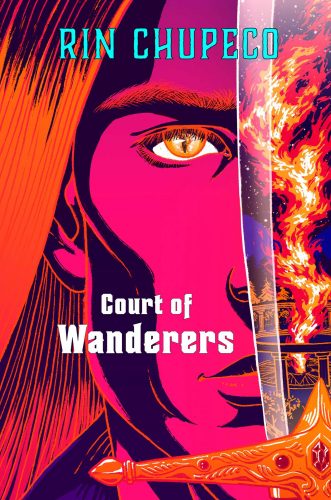 Court of Wanderers (Silver Under Nightfall, #2) by
Court of Wanderers (Silver Under Nightfall, #2) by 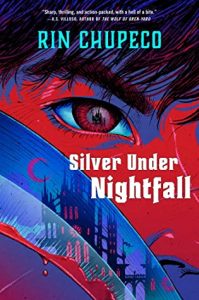 Escape Rating A++: The SQUEE is strong with this review. Let’s get into at least a bit of the why of that fact.
Escape Rating A++: The SQUEE is strong with this review. Let’s get into at least a bit of the why of that fact.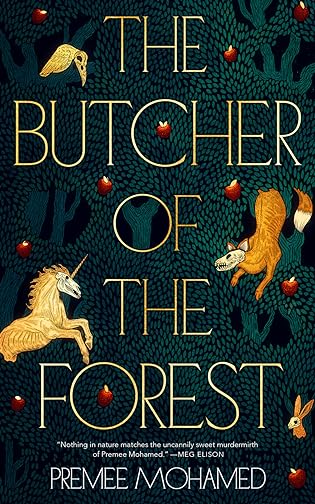 The Butcher of the Forest by
The Butcher of the Forest by 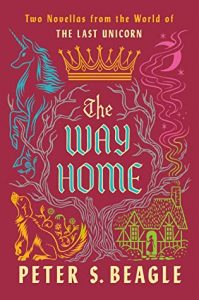 What kept niggling at me through my read of The Butcher of the Forest was that it reminded me, strongly and often, of something else that was not Middle Earth. And that, as it turns out, is the Sooz duology in Peter S. Beagle’s
What kept niggling at me through my read of The Butcher of the Forest was that it reminded me, strongly and often, of something else that was not Middle Earth. And that, as it turns out, is the Sooz duology in Peter S. Beagle’s 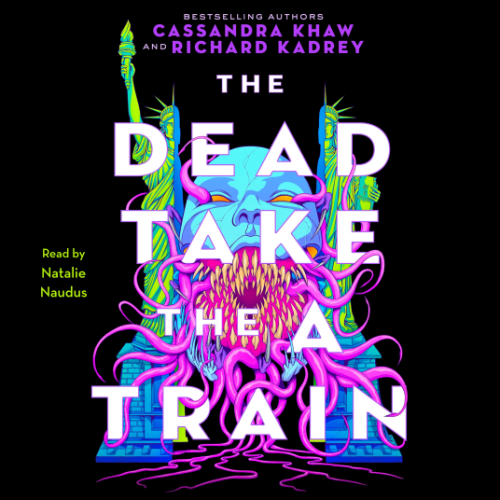 The Dead Take the A Train (Carrion City, #1) by
The Dead Take the A Train (Carrion City, #1) by 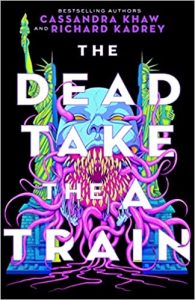 Escape Rating B+: First and most importantly, this is your trigger warning that The Dead Take the A Train is a bloody, gory, gruesome reminder that urban fantasy as a genre is the uncanny child of mystery and horror, much like the uncanny babies being born in yesterday’s book,
Escape Rating B+: First and most importantly, this is your trigger warning that The Dead Take the A Train is a bloody, gory, gruesome reminder that urban fantasy as a genre is the uncanny child of mystery and horror, much like the uncanny babies being born in yesterday’s book, 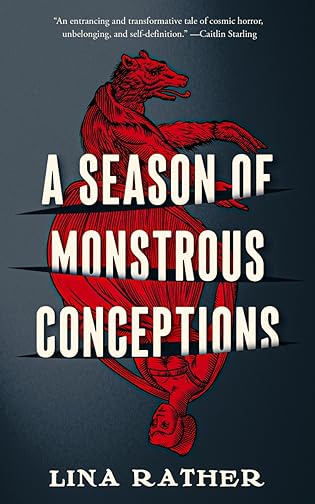 A Season of Monstrous Conceptions by
A Season of Monstrous Conceptions by 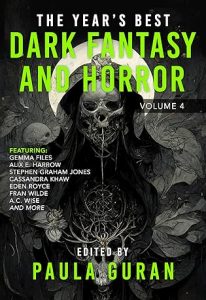 Escape Rating A-: You remember that
Escape Rating A-: You remember that  The Year's Best Dark Fantasy & Horror: Volume Four by
The Year's Best Dark Fantasy & Horror: Volume Four by 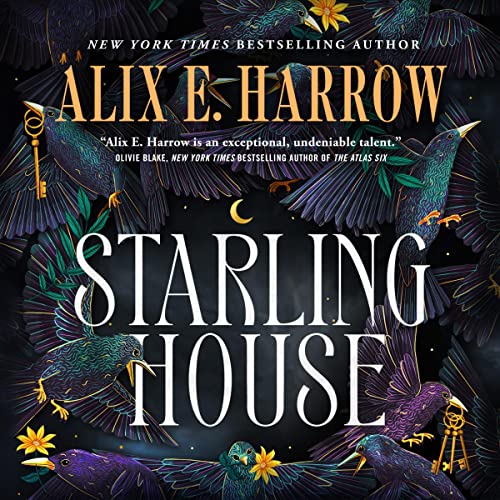 Starling House by
Starling House by 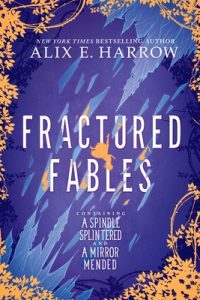 I took this journey in audio, with Natalie Naudus as the most excellent narrator. As a narrator, she seems to specialize in heroines who think that everything is all their fault and that they have to do it all alone, and her voice made me think of her other characters, Emiko Soong in
I took this journey in audio, with Natalie Naudus as the most excellent narrator. As a narrator, she seems to specialize in heroines who think that everything is all their fault and that they have to do it all alone, and her voice made me think of her other characters, Emiko Soong in 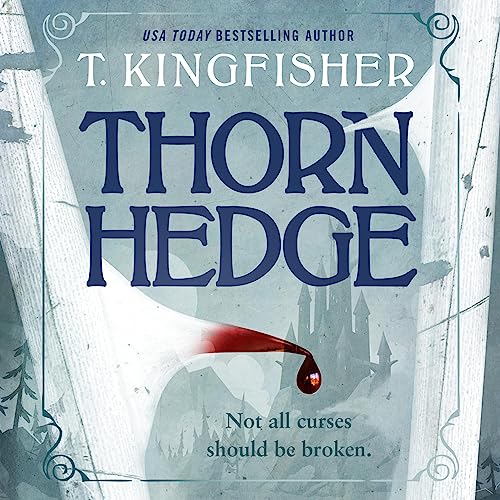 Thornhedge by
Thornhedge by 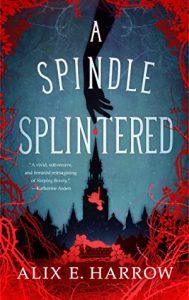 Escape Rating A: Thornhedge is a fractured fairy tale. In fact, Thornhedge and
Escape Rating A: Thornhedge is a fractured fairy tale. In fact, Thornhedge and 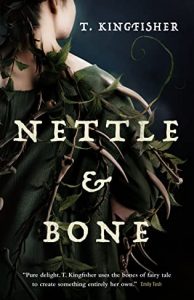 Or in my case, reread.
Or in my case, reread. 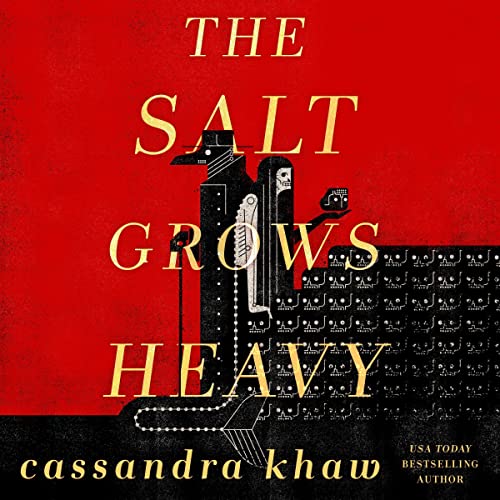 The Salt Grows Heavy by
The Salt Grows Heavy by 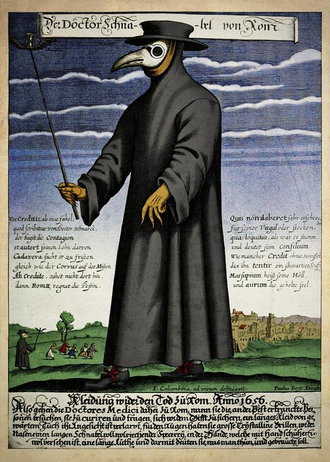
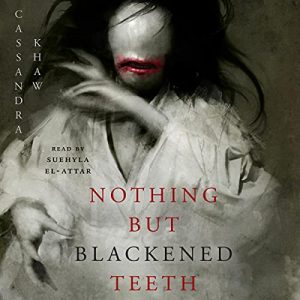 It wasn’t quite as cohesive a story as
It wasn’t quite as cohesive a story as 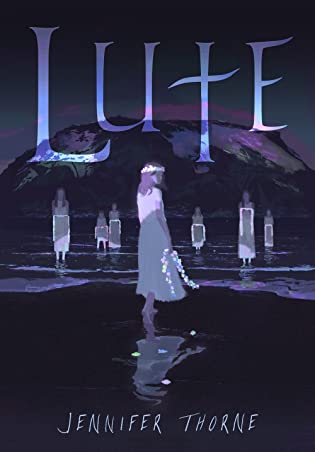 Lute by
Lute by